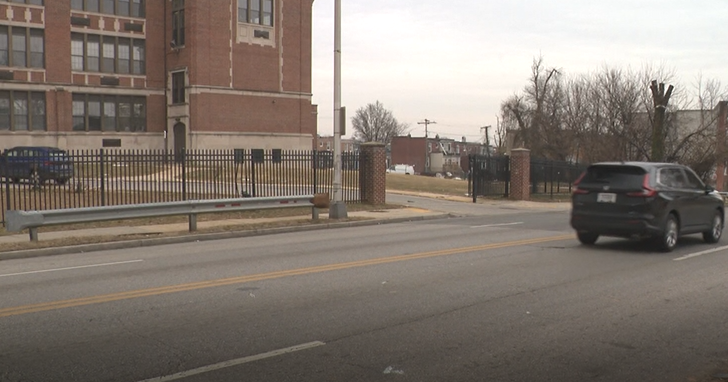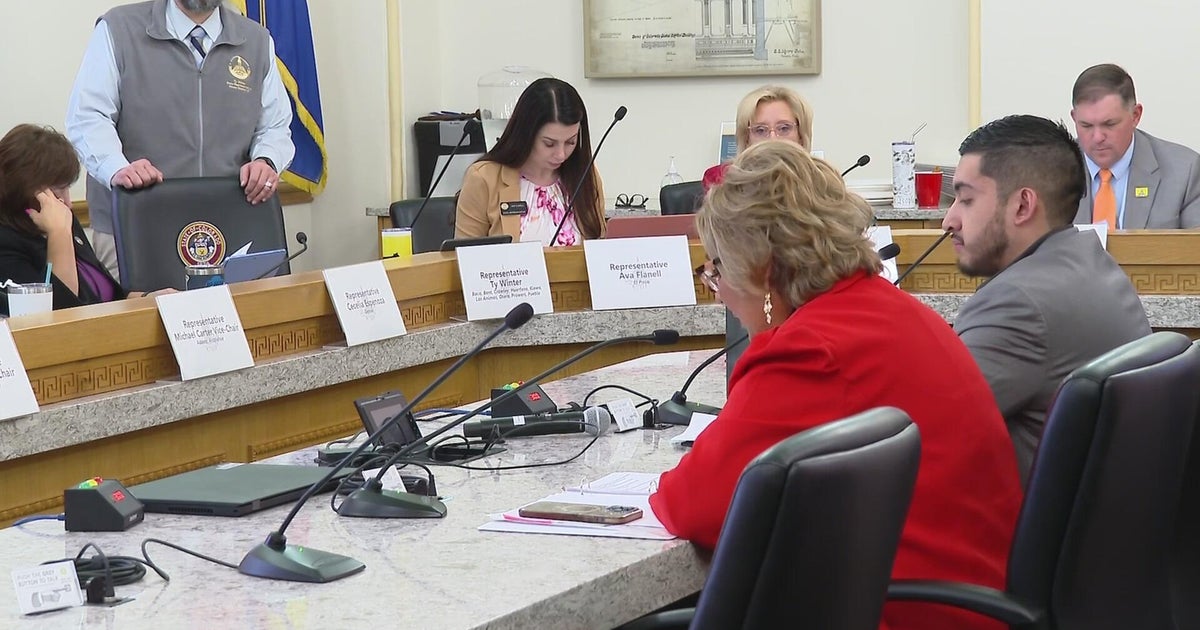Fiscal Cliff Deadline Nears: No Deal Yet
WASHINGTON (AP) -- A Capitol Hill deal to avert the "fiscal cliff" was proving elusive Sunday as a deadline to avert tax hikes on virtually every American worker and block sweeping spending cuts set to strike the Pentagon and other federal agencies grew perilously near.
Senate Majority Leader Harry Reid, D-Nev., and Senate Republican leader Mitch McConnell remained at odds on such key issues as the income threshold for higher tax rates and how to deal with inheritance taxes, among other issues. McConnell complained that Reid had yet to respond to a GOP offer made Saturday evening and reached out to Vice President Joe Biden, a longtime friend, in hopes of breaking the impasse.
One sign of progress came as Republicans withdrew a long-discussed proposal to slow future cost-of-living increases for Social Security recipients as part of a compromise to avoid the cliff. Democrats said earlier Sunday that proposal had put a damper on the talks, and Republican senators emerging from a closed-door GOP meeting said it is no longer part of the equation.
"I was really gratified to hear that Republicans have taken their demand for Social Security benefit cuts off the table. The truth is they should never have been on the table to begin with," Reid said late Sunday afternoon. "There is still significant distance between the two sides, but negotiations continue."
At stake are sweeping tax hikes and across-the-board spending cuts set to take effect at the turn of the year. Taken together, they've been dubbed the fiscal cliff, and economists warn the one-two punch -- which leaders in both parties have said they want to avoid -- could send the still-fragile economy back into recession. Tax cuts enacted in 2001 and 2003 expire at midnight Monday, and $109 billion in across-the-board cuts in federal spending this year would also begin this week.
Sen. Dick Durbin, D-Ill., said the two sides remained at odds over the income threshold for higher tax rates and tax levels on large estates. Republicans said that Democratic demands for new money to prevent a cut in Medicare payments to doctors and renew jobless benefits for the long-term unemployed should be financed with cuts elsewhere in the budget. Republicans also balked at a Democratic proposal to use new tax revenues to shut off the across-the-board spending cuts, known as a sequester in Washington-speak.
President Barack Obama, in a televised interview, blamed Republicans for putting the nation's shaky economy at risk. "We have been talking to the Republicans ever since the election was over," Obama said in the interview that was taped Saturday and aired Sunday on NBC's "Meet the Press." "They have had trouble saying yes to a number of repeated offers." "The mood is discouraged," said Sen. Joe Lieberman, a Connecticut independent who caucuses with Democrats. "The parties are much further apart than I hoped they'd be by now."
The pessimistic turn came as the House and Senate returned to the Capitol for a rare Sunday session. Reid and McConnell had hoped to have a blueprint to present to their rank and file by mid-afternoon.
"I'm concerned with the lack of urgency here. There's far too much at stake," McConnell said. "There is no single issue that remains an impossible sticking point -- the sticking point appears to be a willingness, an interest or courage to close the deal."
McConnell and Reid were hoping for a deal that would prevent higher taxes for most Americans while letting rates rise at higher income levels, although the precise point at which that would occur was a sticking point.
Obama had wanted to raise the top tax rate on individuals making more than $200,000 a year and families making more than $250,000 from 35 percent to 39.6 percent. In talks with Republican House Speaker John Boehner, he offered to raise that threshold to $400,000.
The estate tax issue was particularly tricky since several Democrats, including veterans like Max Baucus of Montana, disagree with Obama's proposal to increase the top estate tax rate from 35 percent to 45 percent.
Republicans said Democrats pressed to turn off more than $200 billion in the across-the-board spending cuts over the coming two years. This so-called sequester is the punishment for last year's deficit "supercommittee" failure to strike a deal.
Hopes for blocking across-the-board spending cuts were fading and Obama's proposal to renew the 2-percentage-point payroll tax cut wasn't even part of the discussion.
Obama pressed lawmakers to start where both sides say they agree -- sparing middle-class families from looming tax hikes. "If we can get that done, that takes a big bite out of the fiscal cliff. It avoids the worst outcomes. And we're then going to have some tough negotiations in terms of how we continue to reduce the deficit, grow the economy, create jobs," Obama said in the NBC interview.
Gone is the talk of a grand deal that would tackle broad spending and revenue demands and set the nation on a course to lower deficits. Obama and Boehner were once a couple hundred billion dollars apart on a deal that would have reduced the deficit by more than $2 trillion over 10 years.
Republicans have complained that Obama has demanded too much in tax revenue and hasn't proposed sufficient cuts or savings in the nation's massive health care programs.
Obama upped the pressure on Republicans to negotiate a fiscal deal, arguing that GOP leaders have rejected his past attempts to strike a bigger and more comprehensive bargain. "The offers that I've made to them have been so fair that a lot of Democrats get mad at me," Obama said. Boehner disagreed, saying Sunday that the president had been unwilling to agree to anything "that would require him to stand up to his own party."
The trimmed ambitions of today are a far cry from the upbeat bipartisan rhetoric of just six weeks ago, when the leadership of Congress went to the White House to set the stage for negotiations to come.
But the deal under discussion Sunday appeared unlikely to settle other outstanding issues, including the sequester, which would total more than $1 trillion in cuts over 10 years, divided equally between the Pentagon and other government agencies. And off the table completely is an extension of the nation's borrowing limit, which the government is on track to reach any day but which the Treasury can put off through accounting measures for about two months.
That means Obama and the Congress are already on a new collision path. Republicans say they intend to use the debt ceiling as leverage to extract more spending cuts from the president. Obama has been adamant that unlike 2011, when the country came close to defaulting on its debts, he will not yield to those Republican demands.
Meanwhile, a senior defense official said if the sequester were triggered, the Pentagon would soon begin notifying its 800,000 civilian employees that they should expect some furloughs -- mandatory unpaid leave, not layoffs. It would then take some time for the furloughs to begin being implemented, said the official, who requested anonymity because the official was not authorized to discuss the internal preparations.
Lawmakers have until the new Congress convenes to pass any compromise, and even the calendar matters.
Democrats said they had been told House Republicans might reject a deal until after Jan. 1, to avoid a vote to raise taxes before they had technically gone up, and then vote to cut taxes after they had risen.
(© Copyright 2012 The Associated Press. All Rights Reserved. This material may not be published, broadcast, rewritten or redistributed.)
Also Check Out:







